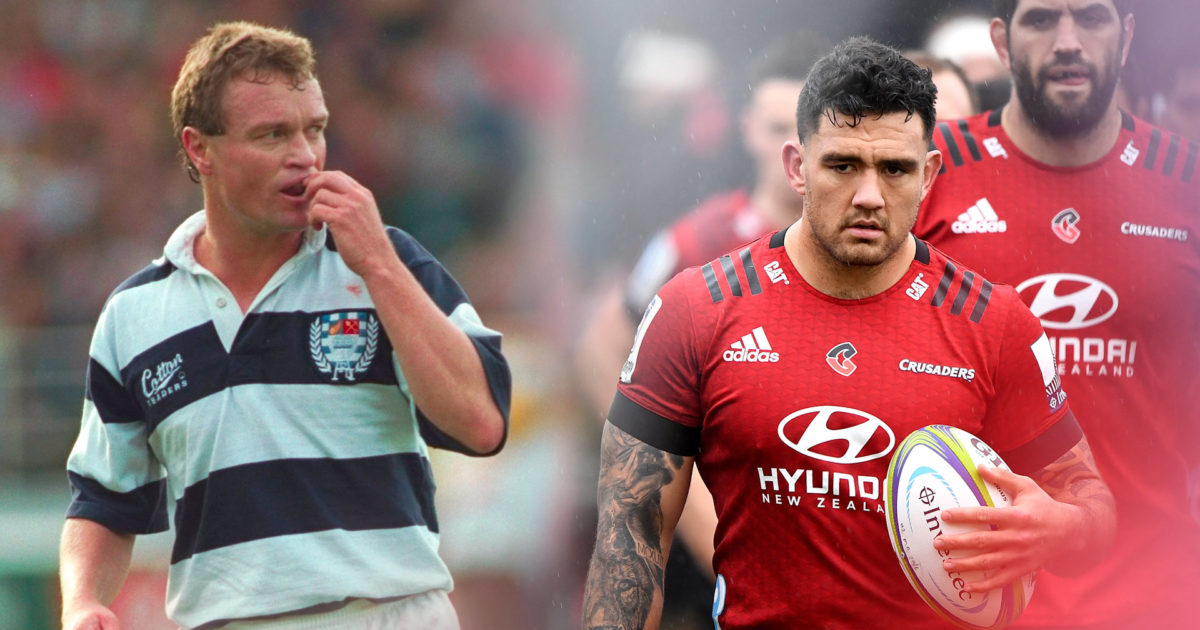Why the Crusaders are more like the great Auckland provincial sides of the '80s

Every champion team needs a slice of X-factor to break open a tight clash in which they are not quite firing in all cylinders.
Take, for example, the Crusaders last weekend, who found themselves pushed to the limit by the fast-finishing Chiefs in Christchurch.
Solid on defence and accurate at set-piece, the Crusaders could not break the Chiefs shackles in the first half. There were just two scrums in the first 31 minutes, so the Crusaders could not use that as their usual platform to launch their raids. The conditions were cold, wet and miserable.
Not tailor-made, one would think, for a flying right wing of Fijian extraction, to shine. And yet it was a piece of Sevu Reece magic that split this game open. From a pinpoint Richie Mo’unga crosskick, Reece leaped like a salmon ahead of Damian McKenzie, caught the ball and then sprinted before setting up Will Jordan with the try assist.
In the second spell, the Reece-Jordan combination struck again when Reece fired a quick throw-in to Jordan, who scooted away for the try. Those sort of plays help cement Reece’s status as the finest Crusaders’ No 14 of the 25 years of Super Rugby. Not bad for a man who was just an injury replacement 18 months ago.
https://www.instagram.com/p/CCDOXnUAsym/
In the final analysis, the Crusaders, while far from their best, played the percentages better. That’s what makes them a great team, the ability to find a way to win when they are not hitting the high notes.
It is clearly reminiscent of the peerless Auckland provincial side of 1984-90 under firstly John Hart and then Maurice Trapp and Bryan Williams. That side had the best players, with many All Blacks greats peaking at around the same time, but it also knew that certain X-factor, often in the form of John Kirwan and Terry Wright, could turn a tight contest.
Failing that, Auckland could fall back on a dominant scrum, the boot of Grant Fox, both tactically and off the sand, as it was back then, or its unparalleled support play, which stemmed from fitness levels that were unprecedented for the 1980s.
It made for compelling viewing at Eden Park during the momentous Ranfurly Shield era. Invariably, a challenger would throw everything at the holder. Auckland would absorb the intensity and then crank up their strengths to blow out the scoreline.
In 1986, North Harbour brought the heat in a midweek Shield challenge. The young upstart from over the bridge might have been the better side for much of the contest, but the wily old veteran Andy Haden just took over, calling himself on every lineout ball and, with Fox’s boot pinning the visitors in their half, shut the game down.
In 1988, it is no exaggeration to say that Frank Bunce’s famous tackle on Noel Pilcher saved Auckland’s blushes, and the Log o’ Wood.
Those were just the games when Auckland was not dominant. On many other occasions, it just blew bonafide challenges off the park with speed and clinical finishing. Witness the first 40 minutes of the Otago challenge in 1990. Watch that for slick passing and support play of the highest order.
From 1983 until 1992 when Graham Purvis’ hand helped Waikato edge Auckland in the first NPC semifinal at Eden Park, Auckland lost only once, in 1987, on its hallowed turf. That was when it had to field a B side in the South Pacific Championship against Canterbury. Eden Park was a fortress.
Orangetheory Stadium, once AMI Stadium, will probably be home to the Crusaders for another three seasons until their new home is built. But, in the meantime, it is just about an impenetrable citadel, the Crusaders having dropped just two of their last 46 at the venue, one of those to the 2017 touring British and Irish Lions and in 2016 to the brilliant Hurricanes.
The Crusaders invariably find a way to win, just like Auckland of the 1980s.
But it will still take some effort from the resurgent Blues to spring the big upset on July 11.

























































